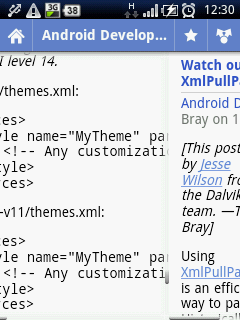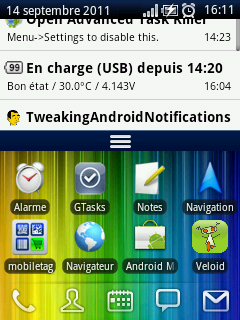 Me on Twitter
Me on Twitter 
- "Selon les services allemands de cybersécurité, Windows 10 vous surveille de 534 façons [...] et montre qu’à moins… https://t.co/t2qXSX6xt6 — 6 years 8 weeks ago
- Stop saying, “We take your privacy and security seriously” - https://t.co/MippyEQMtx — 6 years 8 weeks ago
- Introducing Ionic 4: Ionic for Everyone | The Ionic Blog - https://t.co/bwFrpypFNY — 6 years 12 weeks ago
- Récit de la découverte des bitcoins dans la fresque « La Liberté guidant le peuple 2019 » – https://t.co/0NryL5qjxT… https://t.co/ilKQOA172k — 6 years 12 weeks ago
- Why does decentralization matter? - Official Mastodon Blog - https://t.co/v7zfx38YvF — 6 years 15 weeks ago
- RT @HenrikJoreteg: This is so awesome. PWAs on Android can now tap into native sharing both as the sharer and share target if you're using… — 6 years 16 weeks ago
- Slack shuts down accounts belonging to Iranian expats and users who visited Iran - https://t.co/POPoBOuZql — 6 years 17 weeks ago
- Very interesting alternative, decentralized public network. The LibreRouter project aims to make mesh networks simp… https://t.co/X8evx8jdtE — 6 years 17 weeks ago
- Got it! To me one year, tough... https://t.co/UeYMWIJlsw #puzzle #nutcase #christmas https://t.co/QM7lOQrNZA — 6 years 17 weeks ago
- RT @gpeal8: Wow, using the internet in Europe sucks. GDPR pop ups on every single website can't have been the original intention of the law. — 6 years 19 weeks ago




